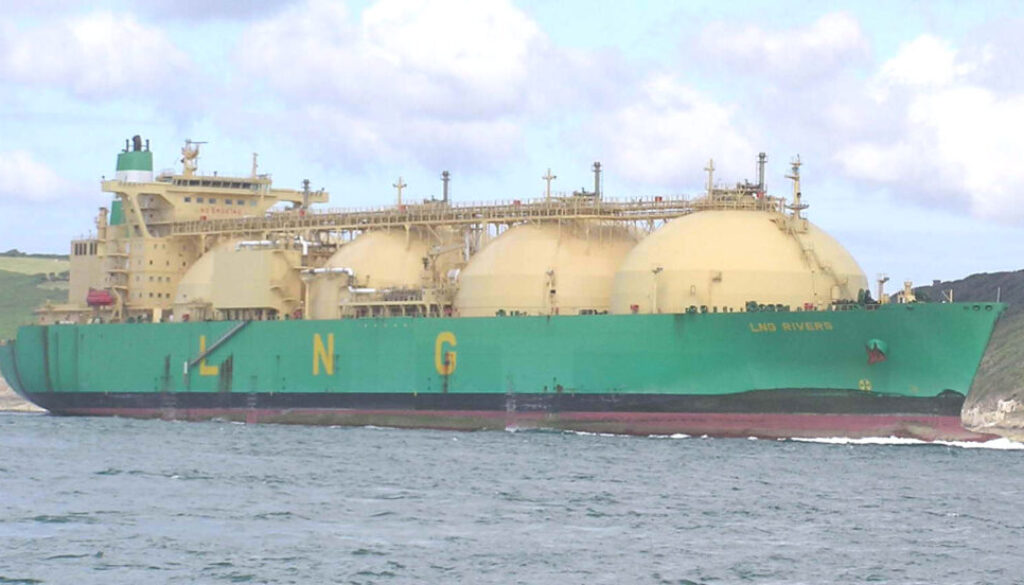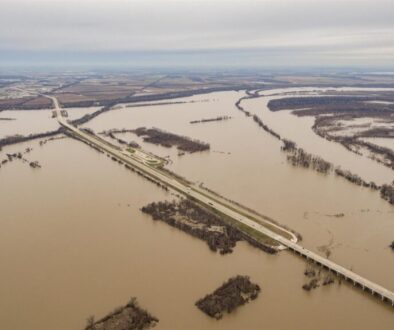Scientists urge US officials to reject LNG export expansion
By Dana Drugmand
More than 125 scientists have issued a stern warning to US officials over a rapid expansion of natural gas production, saying the moves threaten to exacerbate the climate crisis and risk further environmental and public health harms.
The scientists delivered their message in a September 12 letter addressed to US Secretary of Energy Jennifer Granholm and Treasury Secretary Janet Yellen, pushing back against industry claims that expanding natural gas production and consumption is compatible with US and international climate goals.
The concerns from the scientific community come as the US Department of Energy prepares to update an evaluation of liquified natural gas (LNG) export approvals, and as the Treasury Department reviews the climate impacts of various forms of hydrogen production, including production from fossil gas, as it determines tax credit values. The Biden administration paused new LNG export approvals earlier this year to further evaluate their climate impacts.
“The stakes could not be higher,” the scientists wrote. “The choices that you make relating to modeling assumptions for the heat-trapping potential of natural gas will determine if the federal government will make decisions based on climate science or wishful thinking. The science is clear… that the continued use of gas at current global levels will add to global warming and climate damages.”
The letter follows the July release of a study by two groups advocating for natural gas that concluded 2022 global greenhouse gas emissions would have been much higher without US LNG exports. That study did not look at emissions reductions that could have been achieved with a shift to renewable energy or other lower carbon alternatives, however.
In the scientists’ letter to US officials, the group said the fossil fuel industry was falsely asserting that an expansion of natural gas production and consumption is consistent with climate goals. The industry is “advocating for flawed modeling assumptions that would hide the true climate impact of gas,” the scientists wrote, calling it “imperative” for the government to reject the industry.
“Trying to prove whether US gas is better or worse for the climate than other fossil fuels is like debating whether the water in the Titanic’s swimming pool is the right temperature. It misses the bigger point, which is that increasing supplies of fossil fuels from anywhere will undermine global progress toward science based climate goals,” the letter states.
In response to the letter from scientists, Hinson Peters, a spokesperson for the Natural Natural Gas Supply Association and Center for LNG, said US LNG exports “remain a vital tool for countries looking to replace dirtier fuels, increase renewable energy deployments, and strengthen their energy security.”
Numerous examinations have found that US LNG exports are a “net-positive for global climate efforts and have lower life cycle emissions than coal in export markets,” Peters said.
Both LNG and hydrogen sourced from fossil or “natural” gas, critics say, are essentially just different forms of the fossil fuel, which is comprised almost entirely of methane. This powerful greenhouse gas has a heat-trapping potential that is more than 80 times greater than carbon dioxide over a 20-year time period. Some modeling assumptions for assessing methane’s climate impact, however, use a 100-year timeframe. That model is “arbitrary” and outdated, the scientists argued in their letter, saying it “represents an attempt to skew the way we measure methane’s impact on the climate in a way that masks its damage.” The letter also points to studies on methane leakage finding that leakage rates exceed earlier federal estimates and are especially damaging to the climate.
The letter cited new findings by Robert Howarth, a professor of ecology and evolutionary biology at Cornell and an expert on methane. Howarth’s new research, which is peer reviewed but not yet published, concluded that greenhouse gas emissions from LNG are up to 33% higher than that of coal. Howarth’s study examines the full lifecycle emissions impact of LNG that is exported from the US, and concludes that “ending the use of LNG should be a global priority.”
Howarth’s research on LNG has been attacked by the industry and its supporters, including Republican members of the US House of Representatives Committee on Science, Space and Technology who sent a letter to Granholm last month criticizing his methodology.
But according to the scientists who signed onto the new letter sent this week, Howarth’s modeling assumptions regarding the 20-year timeframe of methane’s global warming potential and methane leakage rates are entirely reasonable and accurate.
Jim Walsh, policy director at Food & Water Watch, said that fossil fuel lobbyists and allies are currently trying to influence the Biden administration’s evaluations around the climate footprint of methane gas. “What the fossil fuel industry is largely working to do is to pressure these agencies to use outdated science about the climate impacts of LNG and hydrogen,” he said. Food & Water Watch organized the letter in conjunction with the Science & Environmental Health Network.
It is not the first time that scientists have written to the Biden administration expressing concern over the buildout of LNG. Last December, 170 scientists sent a letter to President Biden imploring him to reject the massive Calcasieu Pass 2 (CP2) project and other proposed LNG facilities. If approved, CP2 would be the largest LNG export terminal in the Gulf region, and is estimated to result in annual greenhouse gas emissions that are 20 times greater than that of the Willow oil project in Alaska. In June, the Federal Energy Regulatory Commission granted authorization to CP2, but the project still needs approval from the Department of Energy before it can begin exporting LNG.
The DOE just recently approved another LNG export project, proposed by a company called New Fortress Energy to export LNG from a facility in Mexico. The gas for the project is sourced from the US. This is the first pending LNG export project approved by the Biden administration since the pause was lifted.
“It’s very disappointing that the administration moved that project forward, particularly given the fact that the administration has said publicly that they don’t have the information available to actually make a good public interest determination about LNG exports,” Walsh said.
(Featured image by Pline, Wikimedia Commons, CC BY-SA 3.0).
 EWG
EWG


